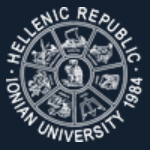Detailed introduction of Ionian University:
Introduction and Overview
Located in the Ionian Islands of Greece, Ionian University is one of the newer institutions of higher education in Greece. The university offers undergraduate and postgraduate degree programs and summer camps, covering a variety of fields such as humanities, social sciences, science and engineering, with students from different countries and an international learning atmosphere.
History and Establishment
Founded in 1984, its original site was located in the city of Kerkyra in memory of the first university in Greece, the Ionian Academy. In 1985, Ionian University began to enroll students in Corfu. In 2018, the Ionian Islands Institute of Technical Education was incorporated into Ionian University, expanding it to four Ionian Sea islands, including Corfu, Lefkada, Kefalonia, and Zakynthos.
School Strength
Faculty: With more than 600 faculty and staff, including experienced professors, associate professors, professional researchers and teaching assistants, providing students with high-quality teaching and guidance.
Academic Research: Since the establishment of the Special Account for Research Grants in 1988, more than 160 research projects and educational programs funded by the European Commission, international organizations, the General Secretariat for Research and Technology of Greece, ministries, banks, other national organizations and private institutions have been carried out.
International Cooperation: Actively participate in international exchanges and cooperation, establish cooperative relations with many foreign universities, carry out student exchanges, teacher visits, joint research and other projects, providing students with a broad international perspective and exchange opportunities.
Nature of the institution
Public university, funded and managed by the Greek government.
Educational philosophy
Aims to revive and cultivate the local intellectual heritage, which is partly derived from the cultural influence of the long-term European occupation. Through its educational, scientific and intellectual activities, it strives to play an important academic role in Greek higher education institutions, focusing on cultivating students' comprehensive qualities and innovative abilities, and encouraging students to actively participate in academic research and practical activities.
Key laboratories and disciplines
Key laboratories: The History Department has the Laboratory of Historical Documents and the Mediterranean World, the Laboratory of Modern Historical Documents, the Laboratory of Ancient World Studies, etc.
Key disciplines: History, foreign language translation, musicology, archives and library science, informatics, audiovisual arts, digital media and communication, ethnomusicology, environmental science, food science and technology, regional development, tourism and other disciplines have certain advantages and characteristics.
Faculty
Including five colleges, including the School of Humanities, the School of Information Science and Information, the School of Music and Audiovisual Arts, the School of Environment, and the School of Economic Sciences, with a total of twelve departments.
Ranking
It is not at the forefront of the QS World University Rankings, but it has a certain reputation and influence in Greece, and has outstanding research and teaching in specific disciplines.
Cost
Undergraduate course tuition fees are generally around 500-1000 euros per semester, and graduate course tuition fees are about 800-1500 euros per semester. The specific fees vary depending on the major.
Campus environment
Teaching facilities: It has modern classrooms, lecture halls, libraries and computer network systems, etc., which provide students with good learning conditions.
Cultural facilities: There is a museum on campus, which houses collections including printed materials, historical relics and digital culture, as well as an art center, which enriches students' extracurricular cultural life.
Living facilities: Students can enjoy venues and facilities such as sports fields, swimming pools, and cinemas to meet their leisure and entertainment needs.
Natural environment: Located in the Ionian Islands, the campus is surrounded by beautiful natural scenery, providing students with a comfortable and pleasant learning and living environment.
-
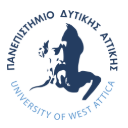
University of West Attica
-
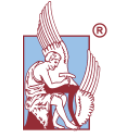
Technical University of Crete
-

International Hellenic University
-
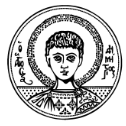
Aristotle University of Thessaloniki
-
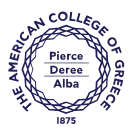
The American College of Greece
-
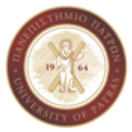
University of Patras
-
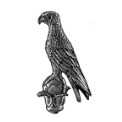
University of Ioannina
-

Democritus University of Thrace
-

Hellenic Open University
-
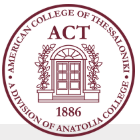
American College of Thessaloniki
-

Mesoamerican University
-

Istmo University
-

Mariano Galvez University of Guatemala
-

Regional University of Guatemala
-

Galileo University
-

Francisco Marroquín University
-

Rafael Landívar University
-

University of the Valley of Guatemala
-

University of San Carlos of Guatemala
-

Technological Institute of Tlaxcala Plateau
-

Golfo University
-

Technological University of South Sonora
-

Technological University of Huejotzingo
-

Tizimín Institute of Technology
-

Chilpancingo Institute of Technology

